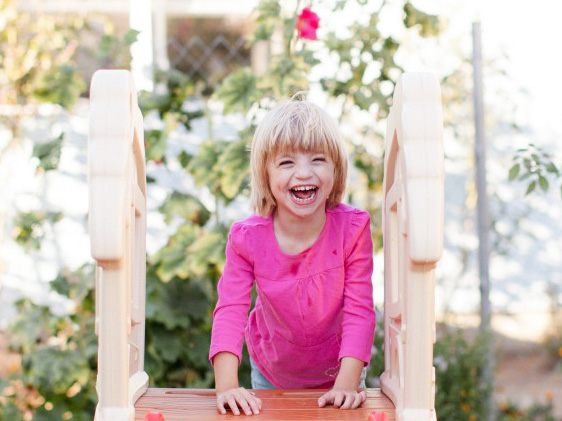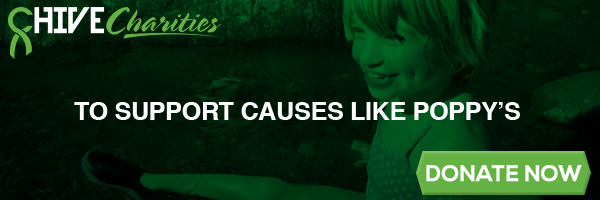Without saying a word, Poppy speaks to the heart of a nation (10 Photos)
It’s three o’clock in the morning and there is a single light on in the Newell house. Poppy is the only one up, and she has been awake for hours. She plays with her toys and self-entertains until dawn when she can run and wake up her sisters. This span of time, this hiatus between night and day is difficult for Poppy. She thrives on being surrounded by people, on stimuli and interaction. Her patience wanes as she watches the clock tick closer and closer to morning.
There is an immediacy about Poppy, an urgency to rush in new experiences. The energy about her is palpable, electric, and contagious.
Certain components of Poppy’s personality are just that, her personality. Others are effects of her rare diagnosis, Angelman Syndrome. For example, she does not recognize the concept of strangers, to her – everyone is a friend. This is admirable, and if more of us subscribed to this particular ideal we’d probably live in a much happier world. But it’s also worrisome. Children with Angelman’s don’t fully understand danger, leaving them vulnerable to bad situations. Other symptoms of this rare disorder include the sleep deficiency that keeps Poppy up most of the night, excessive smiling and giggling, low muscle tone, delayed development, and speech impairment.
Balancing Poppy’s desire for independence with her safety is not a problem specific to Angelman Syndrome. It is a struggle that speaks to all families that have children with special needs.
Now in their third year, Chive Charities has had the opportunity to help many families, veterans, and non-profits. Because they specialize in rare diseases, every story written gives a megaphone to the overlooked causes. This is a community of misfits – we know a thing or two about rooting for the underdog. Each time we give, we form an impenetrable bond. The number of assisted families now exceeds 100 and the network continues to grow, an undercurrent of compassion that weaves in and out of hundreds of lives across the nation.
It is because of this current that the lives of two families’ intertwined. Poppy met Caroline, a little girl with another rare diagnosis, CdCS. If not for the network that connects these families, the Newells and the Woodleys would never have met. And since both their daughters struggle with incredibly rare diseases, there is almost no one in the world who could empathize with their journey – except each other.







